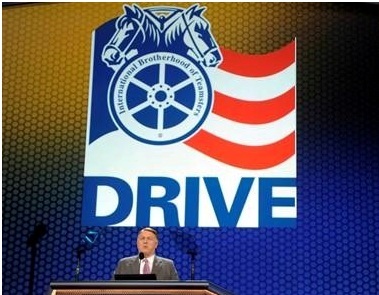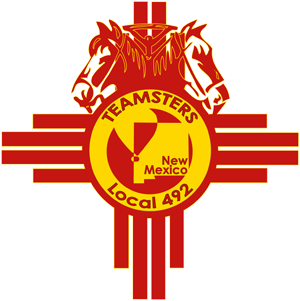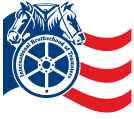
A Short History of D.R.I.V.E - Democrat, Republican, Independent, Voter, Education
A Need for Political Action- In 1959, the Teamsters recognized the need to develop comprehensive legislative and political programs within the union following the passage of the Landrum-Griffin bill and other anti-labor legislation. In 1959 more anti-labor legislation came out of Congress than ever before, including legislation affecting strikes, car hauling and prohibition of gypsy truck drivers. The National Manufacturers Association strongly advocates (with many followers) placing unions under anti-trust laws by 1966.
Forming D.R.I.V.E.--In November 1959, James R. Hoffa establishes the Department of Legislation and Political Education at the IBT. Sidney Zagri, Teamster counsel, is named Director. Hoffa calls for the Department to develop political action programs for the1960 election. Funding is strictly voluntary and separate from dues. Rates are $3 annual membership and $100 for lifetime membership. Rates are not raised until 1977 when it increases to $5 annual membership. In the mid 1980s a new concept of $1 a week pledge is enacted as costs in fighting anti-labor forces rise and the number of critical issues increases.
In 1959, Zagri quickly realizes one of the best resources the union has is wives and women members, as women had been proven to be outstanding political organizers. Zagri develops a partnership with Josephine Hoffa, JRH's wife, to create a women's auxiliary political action program. The ultimate goal was to have a major auxiliary in every Joint Council and make each D.R.I.V.E. unit a political force at the precinct and block level.
Before D.R.I.V.E. is even formerly christened, Capitol Hill insiders are saying the Teamster program is more effective than the well established C.O.P.E. (Committee on Political Education) program that was developed through the AFL. Officially launched in 1960, D.R.I.V.E. has two main objectives: To elect candidates to public office who are friendly to the interests of Teamster members and passage or defeat of legislation of special concern to Teamster families. These objectives are to be reached by three main tasks to be completed by D.R.I.V.E. committees: 1. Screening and recommending favorable candidates. 2. Launching registration drives. 3. Developing plans for get out the vote campaigns in primary and general elections.
Jo Hoffa--becomes an essential part of the D.R.I.V.E. program and an important role model for Teamster women. Mrs. Hoffa had seen her husband and others physically beaten and subjected to unfair court battles as they tried to improve workers lives. She knew unions could only hold on against tough odds by active participation and constant vigilance. She was one of the first to see that political action was the best defense against the erosion of workers’ rights in the 1950s. She was quoted as saying, "labor's enemies don’t stop for lunch, so neither can we." She knew taking on a task like D.R.I.V.E. was not for the faint hearted. Many women seemed to not care at all about political issues. Many did not even vote.
She traveled from city to city in 1960 and early 1961 attending rallies that only a handful of people would attend. She and her family were subjected to negative editorials and editorial cartoons for her actions, but she did not stop trying to create D.R.I.V.E. groups. She said, "Labor unions were not built by men and women who got their feelings hurt or quit after the first disappointment."
Finally, in 1961-62 the tide begins to turn. By 1963 the numbers of attendees at her rallies and luncheons ranged from 1,200 to 5,000 at single events. For example luncheons in Milwaukee had 5,000 attendees; 1,000 in Des Moines; Kansas City 1,800; and "Jo and Jimmy" D.R.I.V.E. rallies in 1961 in Chicago had 14,000 and 12,000 in Boston. Hoffa and his wife worked as a team, making personal appearances together around the country in 1962 through 1965.
Hoffa conducts the largest telephone conference to date in 1961 by speaking with more than 1 million members on April 9, 1961. His message about D.R.I.V.E. and encouragement for women's committees was beamed into meeting halls and theatres in more than 170 cities.
Mrs. Hoffa's efforts bring forth the entire D.R.I.V.E. in Action program, including D.R.I.V.E. magazine, issue specific political action kits, letter writing campaigns, and political action training programs.
Included in the activities were also the well-received "D.R.I.V.E. Goes To A Party" hostess packets. Women would host neighborhood parties and talk about goals of D.R.I.V.E. and discuss issues relating directly to their families and communities. They then would teach friends and neighbors at the party how to get registration drives and other activities started in their wards and precincts.
Mrs. Hoffa's most important achievement was the D.R.I.V.E. motorcades held throughout the 1960s.
Starting in 1962, women delegates from several states in a region would travel by bus from Teamster joint councils, state conferences and auxiliaries to Washington, DC to meet Senators and Congressmen about labor related issues.
When they returned home the women would visit schools, churches and even go house to house to talk about the experience and give an evaluation of how well the politicians understood and were meeting the local community needs.
On early D.R.I.V.E. motorcades the politicians brushed the women off, not really caring about talking seriously to them.
The politicians quickly changed their attitudes once the women became vocal about the experience. The women were well informed and not shy about holding Senators and Congressmen accountable for their campaign promises.
Especially daunting for the politicians were the well-publicized "Scoring Banquets" held in Washington, where D.R.I.V.E. delegates would get up and rate politicians' voting records--often with the spotlighted Senator or Congressman seated at the table.
Leaders on Capitol Hill came to respect the women and their knowledge.
Senator Hubert Humphrey said he had never seen a more effective political action program than the Teamster women's motorcades.
Black and white Teamster women--even from the South traveled together on buses.
They spoke out on social justice issues as well. In 1965, one hundred and ninety Teamster women from Louisiana, Texas, and Mississippi attend a hearing on minority voting rights and voiced concerns about attitudes and the lack of justice during the discussions.
In 1963 a delegation of D.R.I.V.E. women go after Senator McClellan who was leading a national anti-labor crusade, for his poor record and anti-union bias. According to press, "they pinned him to the wall, and showed his shortcomings." The full transcript of the exchange was printed in the Teamster magazine the following month.
More than 15,000 Teamster women traveled to Washington, DC between 1962 through 1968.
The D.R.I.V.E. message becomes known as "The Great Conversation" on Capitol Hill. "The Great Conversation" issues are discussed and become included in policy meetings on "The Great Society" by Johnson Administration Officials.
The key to D.R.I.V.E. success by all accounts including media, Hill experts, political leadership, is the grassroots support and mobilization.
Other Related Activities
Voter checks were held beginning in 1962. These were a huge success and got rank and file members involved in the political process in record numbers. D.R.I.V.E. members would check to make sure all fellow members were registered to vote, knew polling places, etc.
If not registered, members would be registered right on the spot. If registered, members received a big sticker for their truck or other visible location saying; "Teamsters Will Vote--Will You?"
Teamster vote checks are credited for making a difference in a number of key races, including Nixon's defeat in the California Governor race.
A series of popular essay contests on the importance of D.R.I.V.E. sent winners to Washington, DC and gave them the chance to meet many union and political leaders.
A record 2,400 rank and file Teamster members who had manned the wards and pushed voting via D.R.I.V.E. activities were invited to attend the Johnson inauguration in 1965.
Not since Andrew Jackson had so many "common folk" been on the invitation list.
In 1963 Business Week quotes anti-labor Congressman as saying, "We many not like those D.R.I.V.E. women, but they are effective."
On the Hill D.R.I.V.E. becomes seen as the guardian of civil liberties. D.R.I.V.E. motorcade discussions are credited with pushing Congress to give equal time on the airwaves to minority parties.
In 1964 D.R.I.V.E. educational workshops begin. These are a series of seminars designed to educate business agents and other local leaders on political issues and train them on developing effective political action activities for their members.
Part of every D.R.I.V.E. donations in the 1960s went to The City of Hope, a renowned cancer research and treatment center in California. The hospital did not charge fees to patients. Teamsters had long been associated with the hospital--and have continued to be. Sheryl Crow is current spokeswoman.
Source: IBT Training & Development Department
CALL YOUR LOCAL UNION AND SIGN UP FOR D.R.I.V.E. TODAY! IN THE 1980s MEMBERS DONATED $1.00 A WEEK--WE CAN DO THE SAME IN THE 21ST CENTURY! LET OUR VOICES BE HEARD!




